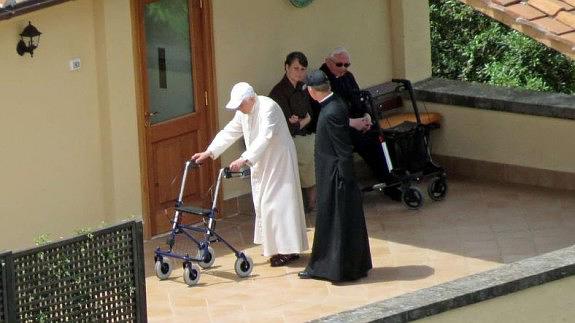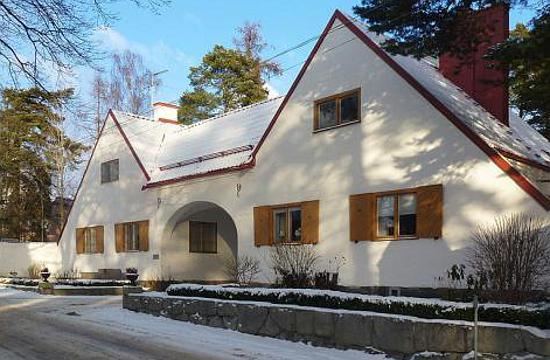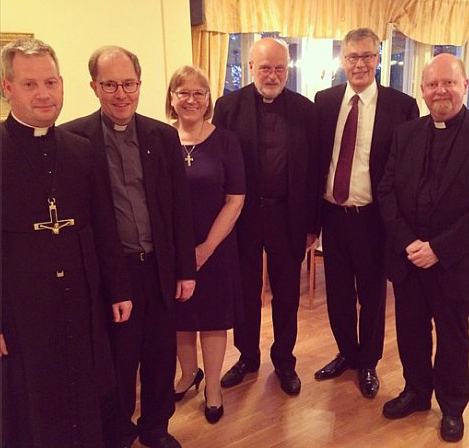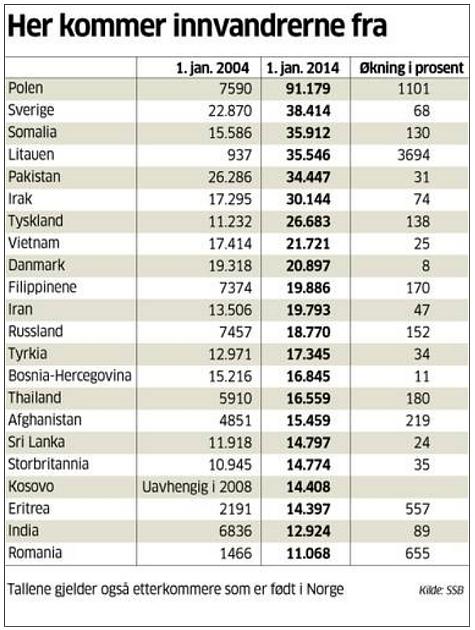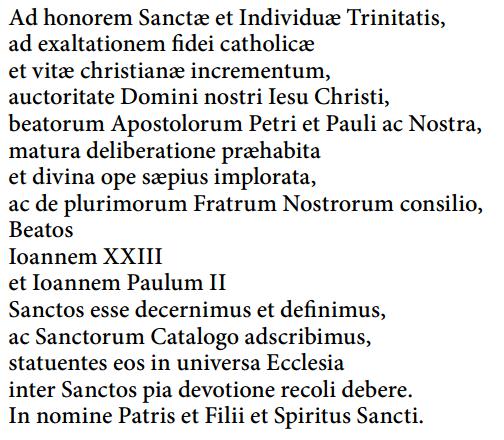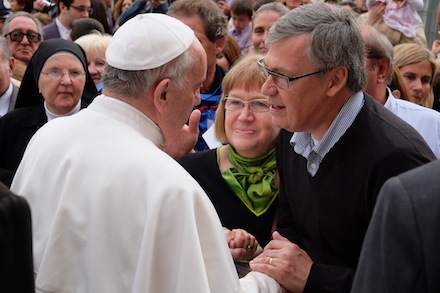Bispesynoden om ekteskapet
Bispesynoden i Vatikanet i høst skal ta opp flere aspekter ved ekteskapet, men fokuset har vært neste bare på om gjengifte (utenfor Kirken) skal få lov til å motta kommunion (noe de ikke har lov til i dag). Sandro Magister skriver om dette:
Pope Francis doesn’t like the discussion in view of the upcoming synod being focused only on communion for the divorced and remarried. He said so to journalists during the flight back to Rome from the Holy Land. His preference is decidedly for a «holistic,» global reflection on the family.
But what focused everyone’s attention on that controversial point was precisely the presentation with which Cardinal Walter Kasper introduced the consistory last February. A presentation that Francis immediately passed with flying colors, telling the cardinals he had found it theologically «profound,» «serene,» thought out «on [his] knees,» and that the Argentine Jesuit Juan Carlos Scannone, the theology professor of the young Jorge Mario Bergoglio, has praised even more highly in the latest issue of «La Civiltà Cattolica.»
The fact is that since that consistory the controversy over communion for the remarried has rocked the Church even at the highest levels. …
I denne artikkelen presnterer Magister noe kardinal Brandmüller har sagt i denne diskusjonen:
As the Church historian that he is – and as president for more than twenty years of the Pontifical Committee for Historical Sciences – Brandmüller has presented in this essay the clash between Pope Nicholas I and Lothair II, king of Lotharingia, in the ninth century.
Lothair first had a mistress named Waldrada, then married the noble Teutberga for the sake of political interests, and later separated from her and married his previous companion, wanting at all costs that the pope should recognize the validity of his second marriage.
But in spite of the fact that Lothair enjoyed the backing of the bishops of his region and the support of Emperor Louis II, who even invaded Rome with his army at one point, Pope Nicholas I – now venerated as a saint – did not give in to his claims and never recognized his second marriage as legitimate. …
I denne artikkelen siterer Magister også noe (nyttig og interessant) som Martin Grichting sier om holdningen til kommunion mer generelt:
The upcoming synod, and in particular the question of the divorced who have «remarried» in a civil ceremony, could be an opportunity for new reflection on the conditions that make sacramental communion fruitful and on the frequency of receiving this sacrament.
The Council of Trent did not prescribe any particular frequency. Then the precept of receiving communion at least once a year was established. [. . .] Although afterward many spiritual authors recommended frequent communion, it was only with the decree «Sacra Tridentina Synodus,» issued by the sacred congregation of the council on December 20, 1905, that the turning point came.
This document, promulgated at the initiative of Pope Pius X, stated that frequent and even daily communion was highly commendable, and invited the faithful to receive it often.
Pius X, however, laid down a few conditions for frequent communion. The faithful must not receive it out of habit, for the sake of vanity or human respect. Above all they must be free from grave sin and have the intention of sinning no more, according to the word of Saint Paul: Let each one recognize the body of the Lord and not eat and drink his condemnation by receiving it unworthily (cf. 1 Corinthians 11:27-29).
Even back then, therefore, one could not think of a general and unrestricted invitation to receive sacramental communion, especially since the rules for Eucharistic fasting were much more restrictive than they are today. In many cases, in fact, communion was distributed only during the first Sunday morning Mass.
But unfortunately the conditions for receiving sacramental communion, which at the time of Pius X were still considered obvious, have practically been ignored by the Church in recent decades. In practice, what remains of the guidelines of Pius X today is only the invitation to frequent communion, which is even interpreted as an invitation extended to all present at the celebration. Today sacramental communion is seen as an obligatory part of the rite of the Mass, like making the sign of the cross with holy water or the exchange of the sign of peace.
So what is needed for those «remarried» in a civil ceremony – but not only them – is a change of mentality. If the conditions mentioned by Pope Pius X for approaching sacramental communion were still applied in pastoral practice, the question concerning sacramental communion for those «remarried» in a civil ceremony would be situated in a broader context more favorable to them. These faithful would no longer be the only black sheep discriminated against, since of course there is not only the sixth commandment but also the rest of the ten.
Moreover, the problem concerning sacramental communion for those «remarried» in a civil ceremony has been getting more serious in recent decades because of the liturgical impoverishment of ecclesial life. In some parishes the liturgy is reduced solely to the Eucharistic celebration. The various forms of popular piety, the different religious functions, Eucharistic adoration, the common recitation of the rosary or the breviary have been ever more marginalized.
Without a doubt, the Eucharist is «the fount and apex of the whole Christian life» (Lumen Gentium, 11). But the thinning out of the forms that prepare for and lead to this apex accentuates the difficult situation of those who, for whatever reason, are unable to approach this fount of Christian life because the personal conditions of their lives do not permit them to do so. …




